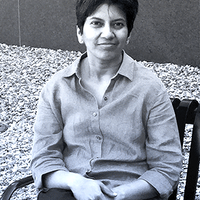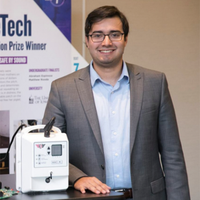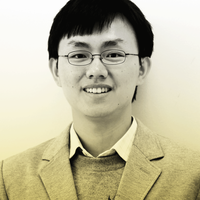“I did really well in school because of
‘Reinforcement Learning’. When I got good grades, my parents would reward me and offer positive feedback, and this eventually led to good study habits.”
This is how Yuchao Yang describes his experiences growing up, in a unique and scientific way. He is now a well-known scholar in neuromorphic computing, an area of research inspired by the workings of the human brain. These studies could potentially lead to the development of new hardware devices, computing architectures, and paradigms that might be as robust and efficient as our brains.
Yang started studying neuromorphic computing with memristive devices (i.e. memristors) in 2008, the second year of his doctoral program at Tsinghua University. A year later, his first research article on memristors, which revealed the filamentary nature of the resistance switching phenomena was published in the journal Nano Letters. It, so far, has received more than 630 citations according to Google Scholar and holds the record for the most cited paper on memristors in China.
After completing his Ph.D. degree in less than 5 years, Yang joined the University of Michigan - Ann Arbor as a postdoctoral research fellow. He primarily focused on understanding the microscopic mechanism of neuromorphic devices and resistive switching mechanisms in different memristive systems. Such innovative studies helped uncover many of the mysteries in memristive switching and identify limitations in the existing theory. He was the first researcher in the world to systematically and convincingly show all the different filament growth modes in experiments.
Yang returned to China in 2015 and became an Assistant Professor at the Institute of Microelectronics, Peking University. His current research focuses on building highly intelligent and energy efficient neuromorphic computing systems with nanoscale memristors as hardware implementations of synapses.
Yang has already developed a number of artificial synapses and memristive devices, capable of imitating short-term and long-term synaptic plasticity. Research articles on these inventions were not only published in top journals like Advanced Materials, but also received recognition from the “Father of the Memristor”, Leon Chua, who believes Yang’s approach could potentially reshape the future of computing.
Yang believes that the ability to study and conduct research in multiple subjects is the key to continuous innovation. “Neuromorphic computing involves knowledge from electrical engineering, neuroscience, physics, computer science, and more. Perseverance is also another critical factor to success,” he added.




